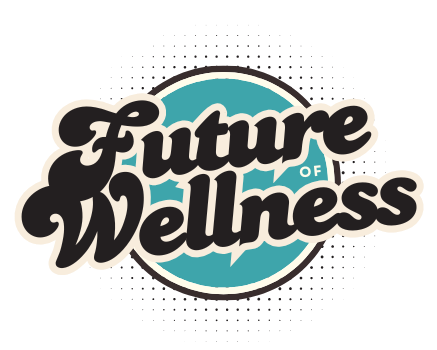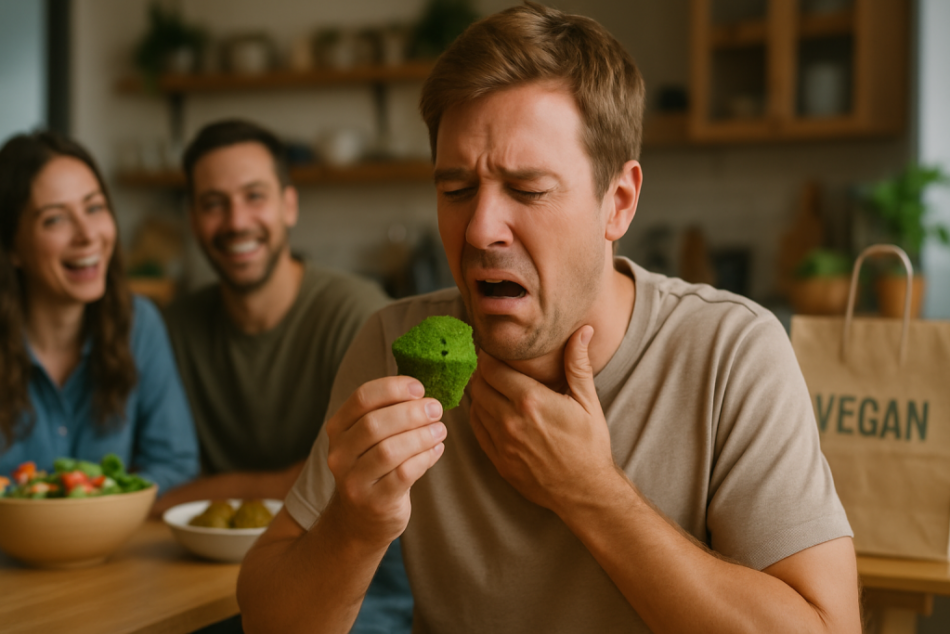Six years into veganism, I’ve perfected the art of the convincing food lie. You know the one—that slight oversell when a non-vegan friend tries your cashew cheese. “It’s really good!” you insist, your voice pitched just a bit too high, while internally acknowledging it tastes like salted Play-Doh. We all do it. It’s practically part of the vegan initiation ceremony.
The truth is, there’s a whole category of vegan foods we’ve collectively agreed to pretend are delicious. Not because we’re delusional, but because admitting they’re terrible feels like betraying the cause. Like somehow saying “nutritional yeast tastes like fish food” means you support factory farming. But here’s the thing: we can care about animals and still admit that some vegan alternatives are crimes against taste buds.
1. Nutritional yeast
Let’s start with the big one. “Nooch,” as we call it to make it sound less like something from a laboratory, is supposedly our cheese substitute. Every vegan recipe blogger writes about it like they’ve discovered gold. “Just sprinkle this magic dust on everything!” they say. “It’s so cheesy and umami!”
No. It tastes like someone ground up vitamins and mixed them with disappointment. I’ve watched new vegans dump it on pasta, take a bite, and try so hard to look pleased while their face does that subtle thing faces do when betrayed. We keep buying it because we’re supposed to love it. I have three containers in my pantry right now. They’re all full.
2. Raw cashew cheese
I’ve spent $15 on a wheel of artisanal cashew cheese that tasted like someone blended nuts with hope and refrigerated the sadness. The texture is somehow both grainy and slimy. The flavor profile ranges from “nothing” to “funky in a bad way.” Yet we serve it at parties on carefully arranged boards with crackers and olives, pretending it belongs there.
The worst part is watching omnivores politely try it. Their eyes search yours for permission to be honest while you both perform this elaborate dance of denial. “It’s… interesting!” they say. “Very… nutty!” We nod enthusiastically while secretly knowing we’d rather just eat the crackers plain.
3. Spirulina anything
Spirulina is pond scum. Literal pond scum. But because it’s packed with protein and B12, we’ve convinced ourselves it belongs in smoothies. Every health-conscious vegan has that moment of dumping a teaspoon of this blue-green powder into their blender and watching their beautiful berry smoothie turn the color of a sewage spill.
The taste is exactly what you’d expect from algae—like licking the inside of an aquarium. But we Instagram these swamp smoothies with captions about “getting our greens” and “superfood mornings” while secretly calculating how much peanut butter we need to add to make it remotely palatable.
4. Tempeh
Tempeh is soybeans held together by fungus, and it tastes exactly like that description sounds. It has this weird nutty, bitter flavor that no amount of marinade can fully mask. The texture is somehow both dry and weirdly moist, like compressed sawdust that’s been left in a humid room.
Every vegan cookbook treats tempeh like it’s interchangeable with tofu, but that’s like saying cardboard is interchangeable with bread because they’re both beige and flat. I keep buying it because it’s protein-rich and I feel like a “real” vegan should like it. It sits in my freezer until it gets freezer burn, at which point I can throw it away guilt-free.
5. Daiya cheese (the old formula)
Veterans of veganism have PTSD from early Daiya cheese. It didn’t melt so much as turn into glue. The texture was like plastic that had been left in the sun—somehow both oily and dry. It coated your mouth with this weird film that water couldn’t wash away, like edible regret.
They’ve reformulated it now (thank god), but we all remember the dark days when this was our only option for pizza. We’d order it at vegan restaurants, watch it congeal into orange patches, and insist it was “pretty good actually” while secretly calculating how many drinks we’d need to wash away the aftertaste. New vegans don’t know how good they have it now, but those of us who survived the Daiya years still flinch when we see that orange package.
6. Seitan
Seitan is literally just wheat gluten, and it has the texture of a rubber boot and about as much flavor. It’s dense, chewy, and weirdly bouncy in a way that food shouldn’t be. When prepared badly (which is often), it’s like eating a stress ball marinated in soy sauce.
But because it’s high in protein and vaguely meat-like if you squint and have forgotten what meat tastes like, we pretend it’s a viable chicken substitute. We bread it, fry it, sauce it heavily, and then chew forever while insisting it’s “just as good” as what we gave up.
7. Carob
Carob is not chocolate. It will never be chocolate. It tastes like someone described chocolate to someone who had never tasted sweetness, and they tried to recreate it using burnt powder and regret. Yet health food stores keep pushing carob chips as a chocolate alternative, and we keep buying them out of desperate optimism.
Every time I eat carob, I go through the same emotional journey: hope, confusion, disappointment, anger, acceptance. Then six months later, I’ll see carob chips at the store and think “maybe they weren’t that bad,” buy them again, and repeat the cycle. It’s the vegan version of an toxic relationship.
8. Rice paper bacon
This might be the most egregious lie we tell ourselves. Someone discovered that if you marinate rice paper in smoky sauce and cook it until crispy, it vaguely resembles bacon in appearance. That’s where the similarities end. It tastes like crunchy disappointment with a hint of liquid smoke.
But we make it for brunch, post photos of our “BLTs,” and use enough descriptors—”crispy,” “smoky,” “savory”—to convince ourselves we’re not just eating seasoned paper. We know actual bacon doesn’t dissolve on your tongue like communion wafers, but we persist in this collective delusion.
Final thoughts
Here’s what I’ve learned: admitting these foods are terrible doesn’t make you a bad vegan. It makes you an honest one. We don’t have to pretend every plant-based alternative is a culinary revelation. Some of them are just bad, and that’s okay. We’re not eating this way because nutritional yeast is delicious—we’re doing it because we’ve decided the ethics matter more than having cheese that actually melts.
The good news? Vegan food has gotten exponentially better in the past decade. For every crime against taste buds like carob, there’s an actually good alternative emerging. Miyoko’s makes cheese that doesn’t taste like sadness. Beyond Meat doesn’t have that weird seitan bounce. Oat milk lattes are genuinely better than dairy ones (I’ll die on this hill).
But until everything catches up, we’ll keep choking down our spirulina smoothies and pretending tempeh bacon is a thing. Because sometimes caring about something means lying about nooch. Just remember—when a new vegan serves you cashew cheese at a party, be kind. They’re trying their best, and somewhere in their pantry, there are three full containers of nutritional yeast they don’t know what to do with either.
What’s Your Plant-Powered Archetype?
Ever wonder what your everyday habits say about your deeper purpose—and how they ripple out to impact the planet?
This 90-second quiz reveals the plant-powered role you’re here to play, and the tiny shift that makes it even more powerful.
12 fun questions. Instant results. Surprisingly accurate.









